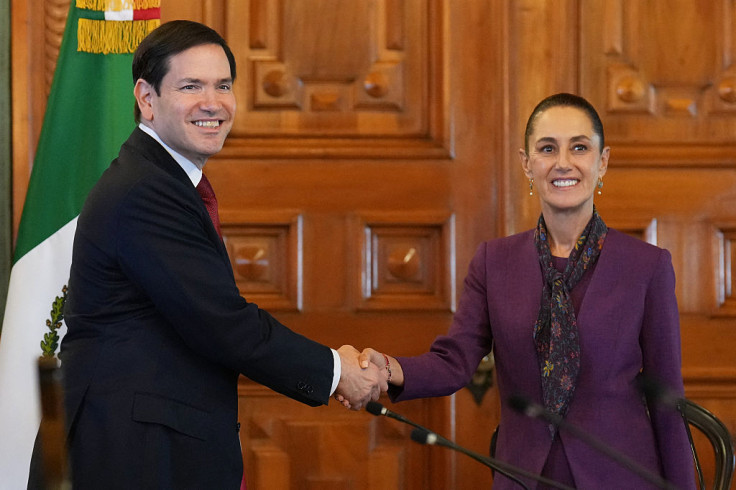
U.S. Secretary of State Marco Rubio made his first official visit to Mexico this week, meeting with top officials including President Claudia Sheinbaum. There, he reaffirmed bilateral cooperation on cross-border security.
Alongside agreements to combat drug trafficking, promote economic development and address disputes over shared water resources, the two leaders also discussed an issue Sheinbaum has repeatedly raised in the past: the extradition and legal status of Ismael "El Mayo" Zambada.
"We spoke about the issue of El Mayo Zambada," Sheinbaum told reporters during her Sept. 4 press conference. "Why it was raised by the secretary of security, the increase in violence in Sinaloa, the rising crime, and details surrounding his capture. Rubio listened but the topic wasn't discussed further."
Through our joint collaboration with President @Claudiashein, the U.S. and Mexico have strengthened border security, taken action to dismantle the cartels, made progress towards sharing water resources, and promoted new economic opportunities. Today we discussed these issues and… pic.twitter.com/8OmsbRQODR
— Secretary Marco Rubio (@SecRubio) September 3, 2025
Zambada, a co-founder of the Sinaloa Cartel and longtime associate of Joaquín "El Chapo" Guzmán, was arrested in July 2024. Since then, the Mexican government has submitted multiple formal requests for his extradition. Zambada maintains he was apprehended by individuals operating outside the law. Sheinbaum, for her part, has said any effort to bring him back to Mexico would follow legal procedures and apply the same standards used for any Mexican citizen.
According to reports from Mexican media, Sheinbaum also used the occasion of Rubio's visit to formally request the extradition of several individuals currently detained in the United States and wanted by Mexican authorities.
"We talked about some targets we want extradited from the United States to Mexico," she said. "And whether someone is sent to the U.S. under the National Security Law or through extradition, those are sovereign decisions made in the interest of our country's security and peace."
She emphasized that decisions involving national security and extradition are made only after a careful review by Mexico's top security institutions. Figures like Zambada, Guzmán and Rafael Caro Quintero, she said, could spark violent retaliation if transferred without a full risk analysis.
"This is part of our collaboration," Sheinbaum said, "but the decision is made by the National Security Council based on a risk assessment for our country. There are other cases where an extradition order is already in place, without any legal protection, and it is carried out immediately."
Mexico, she added, is focused on securing the return of individuals it considers a priority and expects similar cooperation in return.
"We are particularly interested in cases that are highly relevant to Mexico, where we are requesting deportation or extradition — just as they do with us," she said.
© 2025 Latin Times. All rights reserved. Do not reproduce without permission.







